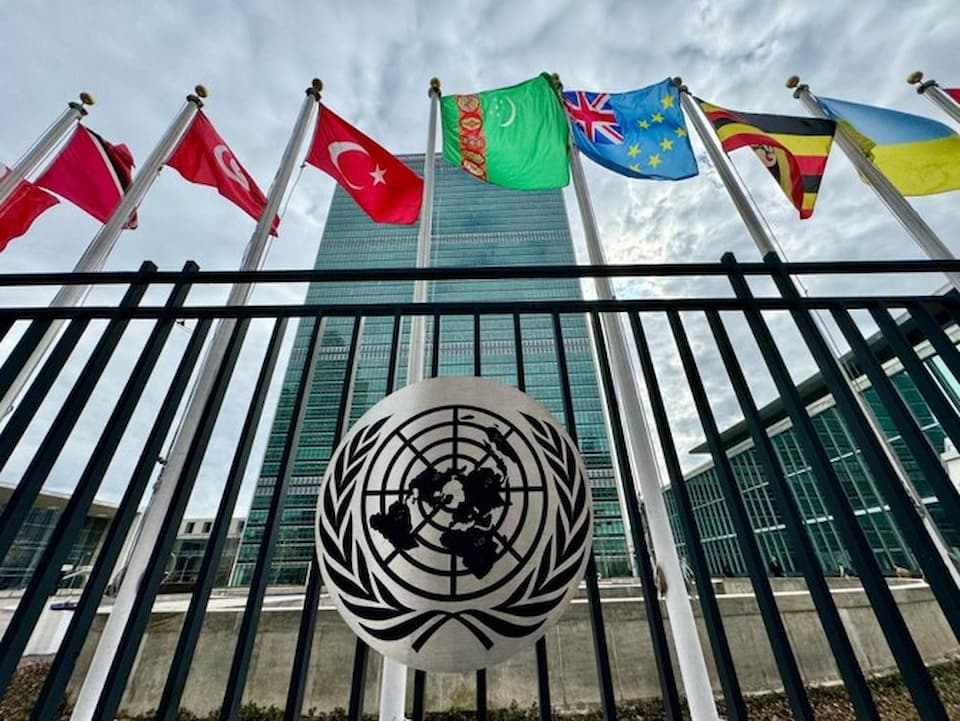UN Adopts First Global AI Resolution - What Does It Mean For Cambodia?
In March 2024, the United Nations (UN) passed and adopted its first resolution on AI (Artificial Intelligence) and called for the promotion of “safe, secure and trustworthy” AI systems that will also benefit sustainable development.

In a document entitled "Seizing the opportunities of safe, secure and trustworthy artificial intelligence systems for sustainable development", the UN laid out its resolution on the highly contentious but groundbreaking advances in AI which have dominated economic, tech, and development headlines for the past 12 months. The General Assembly recognised AI systems’ potential to accelerate and enable progress towards reaching the 17 Sustainable Development Goals.
Cambodia became a UN member in 1955 and is also on its mission to graduate from the Least Developed Country (LDC) category by 2027, having recently received positive feedback from the UN’s preliminary evaluation for the 2024 triennial review for its 2027 graduation. This is part of the Southeast Asian nation's pathway to achieve Upper Middle Income Country status by 2030 and a High-Income Country status by 2050 - but currently there is no national policy on AI.
AI Policies & Frameworks - Cambodia

The UN resolution on AI acknowledges the potential for it to accelerate progress towards achieving the UN's Sustainable Development Goals if systems are developed and used in a safe, secure and trustworthy manner. The European Union Parliament previously approved the Artificial Intelligence Act in early March 2024, which is intended to ensure safety and compliance with fundamental rights, while boosting innovation.
This Act will offer safeguards on general-purpose artificial intelligence but also:
- Limit the use of biometric identification systems by law enforcement
- A ban on social scoring and AI used to manipulate or exploit user vulnerabilities
- Offer the right of consumers to launch complaints and receive meaningful explanations
Globally, the main pushback on the wide adoption of AI has focused on misinformation, especially involving deep fakes, fake news and manipulation of news. Cambodia does not currently have an AI-specific strategy but the technology is covered in the Ministry of Industry, Science, Technology & Innovation (MISTI) published in May 2023 (Artificial Intelligence Landscape in Cambodia: Current Status and Future Trends.)
The Cambodia Digital Economy and Society Policy Framework 2021-2035 also references plans to boost investment in Cambodian infrastructure and the application of AI in data governance, particularly in data use and analysis. In the Cambodia Digital Tech Roadmap 2023 document, AI & Machine Learning were listed among the top DigitalTech technologies for Cambodia in terms of feasibility and importance.
From recent business conferences held in the Kingdom, on insurance distribution, Mohan Jayaraman, Partner (APAC) at Bain & Company, said that that GenAI has the potential to generate annual economic benefits of USD $50-70 billion for insurers and customers globally. He added that for bancassurance, tech and Al is a core engine to re-imagine the future of financial services.
The UN resolution does encourage all governments to develop national policies, safeguards, and standards for ethical AI development and use and calls on UN agencies to provide technical assistance to countries in need - something it is hoped the Cambodian government will do.
What Does The UN Resolution On AI Say?
The AI resolution was “co-sponsored” by in excess of 120 UN Member States and is historic as it is the first time the UN has established global standards and guidelines for Artificial Intelligence.
Below are some of the key takeaways from the lengthy UN AI resolution which encompass, public awareness about AI’s benefits and risks, strengthening investments and capabilities in AI research and development, safeguarding privacy and ensuring transparency in AI systems, as well as addressing diversity and bias issues in AI datasets and algorithms.
- It acknowledges risks to human rights and sustainable development if AI is misused or developed without proper safeguards. Ensuring AI respects human rights throughout its lifecycle is emphasised.
- Bridging digital and AI divides between and within countries is a priority, including through capacity building, technical assistance, infrastructure and connectivity support for developing nations.
- International cooperation on governance frameworks and standards for trustworthy AI is encouraged to prevent fragmentation and promote innovation - these approaches should be inclusive and address varied national capacities.
- The private sector is asked to respect human rights and act responsibly and increased public-private collaboration is needed to ensure fair access to AI's benefits and competitive markets.
- Developing policies and addressing biases to ensure AI advances inclusion and non-discrimination. Assessing impacts on jobs and providing support for workforces is also emphasised.
- Data governance and infrastructure are key to enabling beneficial AI & sharing best practices and promoting consistent approaches and trusted cross-border data flows can help.
With AI being so widely adopted, continued discussions will be needed as AI evolves, through research and analysis informing safeguards and all stakeholders should work cooperatively on AI governance.